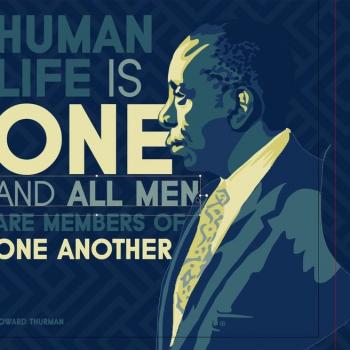The Seventh Sunday after Pentecost – July 11, 2021
2 Samuel 6:1-5, 12b-19; Psalm 24; Ephesians 1;3-14; Mark 6:14-29
Shall we dance this Sunday? Shall we celebrate emerging through the pandemic and hoping for future national transformation? Do you dance with God? Does your congregation’s worship inspire passion and ecstasy? Do you come to worship expecting great things from God and yourself? What happens when you dance to a different drum than God’s? Do our lives become destructive rather than creative?
The reading from Samuel describes David and his companions dancing with all their might in God’s presence. While God cannot be localized to a particular religious object, we can affirm the importance of delight and passion in worship. Worship involves the whole person, body, mind, and spirit. David praises God in song and movement, his whole being is caught up in ecstasy. He recognizes that God is ultimate and that all good gifts emerge from God’s tender mercies. Worship is never meant to be boring but full of delight, wonder, and liveliness. God is more than we can imagine and God’s loving wisdom is manifest in all things.
In many ways this is a humorous passage. David’s dancing is not to be repeated in your congregation. There is almost too much information in this passage regarding David’s dance steps and their impact on one of the audience. There are times when we must recognize that our celebrations may be painful to others. Saul’s daughter had every right to her anger. David’s celebration was grounded in her husband’s demise. While we can’t blunt our enthusiasm, we need to not its impact on those who don’t share our blessings – those who are unable to have children, those wishing to have grandchildren, those who have buried a loved one with cancer.
Praise leads to generosity. Everyone is fed from God’s abundance, not just spiritually but physically. There is no hoarding, but mutual celebration in response to God’s faithful and creative actions in our lives. Authentic worship leads to acts of kindness and care. David’s act was not just personal, it was political. In his delight as leader, he ensured that everyone was fed. In the biblical tradition, faith shapes our personal ethics but also the values we bring to the political arena. Do we put generosity and care for the vulnerable at the center of our citizenship? Does our worship lead to mission?
Psalm 24 proclaims that the earth belongs to God. The Psalm also affirms that some places are particularly holy. These sacred spots, icons and “thin places,” in their unique revealing of God become the lenses through which discover God in all things and all things in God. Holy spots are everywhere, but the pure in heart alone will experience divinity. Others, the Psalmist believes, will walk on holy ground without regard to mystery and wonder. Revelation requires preparation. Grace may come to us unannounced, but even then God’s prior grace, unmerited and abundant, requires a response and turning to fully transform our lives.
Again, politics are at the heart of this passage. The Psalm was not intended for a suburban church or the little brown church in the wildwood, it was intended to be sung in the nation’s capital with leaders present. “The earth is God’s,” not ours to do as we see fit. Our holiness must have an environmental edge to it. Let us not deface what God calls beautiful. We must practice politics and business as if the earth and its peoples really matter.
The reading from Ephesians proclaims that we have every spiritual blessing. God has given us personally and as communities everything we need to flourish and be faithful. Out of blessing comes praise. We recognize that God is lavish and God’s grace is glorious. God’s vision for the church and the world is to bring all things to unity in Christ. God’s very nature as creative wisdom and moral goodness inspires praise and delight and transforms individuals and communities. Be ecstatic and dance with joy. Don’t let your hallelujahs be half-hearted. Live for the praise of God’s glory.
Providence inspires praise which is embodied in practice. Our spiritual gifts are intended for service not self-interest. We are to rejoice in our giftedness but make our blessings a gift to others.
Often progressive churches downplay the importance of praise. It seems too hierarchical – God above and we below – and is often identified with servile relationships to the sovereign male godhead. But, praise is much more than that. It is manifest in delight, gratitude, wonder, and awe. It is revealed loving shouts to God and a sense of connection with God that joins us with all creation. God is God, and cosmic, and God in God’s cosmic wonder is nevertheless revealed in simple daily blessings and the inspiration to acts of kindness. Praise relativizes all our idols and challenges our greed, possessiveness, and manipulation of the planet for our own purposes.
Not all dancing leads to celebration. Not all dancing leads to liberation and sacrificial living. Herod’s murder of John the Baptist reveals another kind of delight that leads to homicide. Herod is interested in John’s message, but only at a surface level. His interest does not lead to transformation of heart. Like so many other leaders of business and government, he lacks a moral compass and is swept away by temptation. Disoriented by another kind of dancing, he succumbs to his wife’s machinations and has the prophet killed. His passion destroys rather than creates. His sense of praise is self-interested, his delight is just for himself and people like himself. Delight without a vision of world loyalty and personal responsibility leads to death and destruction.
Today’s readings invite us to a life-changing dancing praise. They ecstatically take us out of our self-interest to place our lives before God and embrace God’s interests. Self-absorbed delight leads to destructive consumption, greed, and murder. Delight in God’s world and God’s majestic and loving creativity places our passions in congruence with God’s aims at beauty, love, and justice. Praise can orient and guide our pathway, and lead us to proclaim that all things flow from God and deserve our reverence, care, and protection.
(For more on Mark’s Gospel, Bruce Epperly, “Healing Marks: Spirituality and Healing in Mark’s Gospel” and “Mark’s Holy Adventure: Preaching Mark’s Gospel for Year B”)
+++
Bruce Epperly is a pastor, theologian, spiritual guide, and author of over sixty books, including MYSTICS IN ACTION: 12 SAINTS FOR TODAY; FRANCIS OF ASSISI: FROM PRIVILEGE TO ACTIVISM; PROPHETIC HEALING: HOWARD THURMAN’S VISION OF CONTEMPLATIVE ACTIVISM; GOD ONLINE: A MYSTIC’S GUIE TO THE INTERNET: and 101 SOUL SEEDS FOR GRANDPARENTS WORKING FOR A BETTER WORLD.












